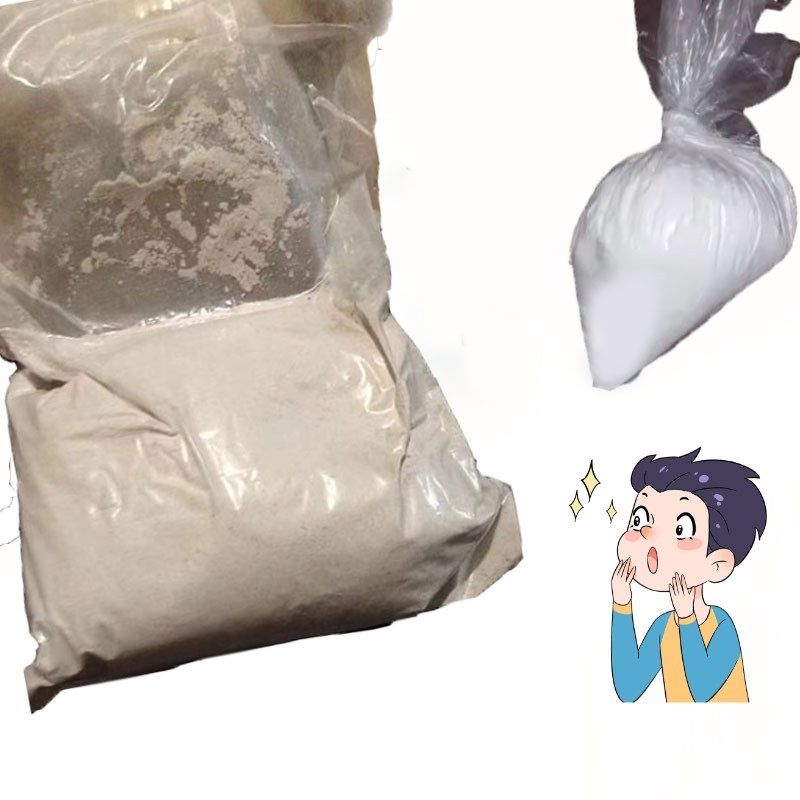-
Categories
-
Pharmaceutical Intermediates
-
Active Pharmaceutical Ingredients
-
Food Additives
- Industrial Coatings
- Agrochemicals
- Dyes and Pigments
- Surfactant
- Flavors and Fragrances
- Chemical Reagents
- Catalyst and Auxiliary
- Natural Products
- Inorganic Chemistry
-
Organic Chemistry
-
Biochemical Engineering
- Analytical Chemistry
- Cosmetic Ingredient
-
Pharmaceutical Intermediates
Promotion
ECHEMI Mall
Wholesale
Weekly Price
Exhibition
News
-
Trade Service
Recently, the research team of Fujian Agriculture and Forestry University Su Songkun led the team of Professor Martin Giurfa from the University of Toulouse III, France, and Professor Zhang Shaowu from the Australian National University to publish a paper entitled "Food Wanting is Mediated by Transient Activation of Dopaminergic Signaling in the Honey" in the top international academic journal "Science".
The latest research results of Bee Brain” (transiently activated dopamine signaling in the honeybee brain regulates food desire) (Figure 1)
.
This study is the first to discover and confirm that dopamine in the honeybee brain regulates Food Wanting, revealing that honeybees (insects) have a food desire system regulated by dopamine similar to mammals
.
This study provides innovative and important scientific evidence for the comparative evolutionary study of "food desire", the basic physiological needs of higher animals and even humans; it provides new ideas for the molecular basis research on bee collection traits and the breeding of excellent bee species; it also provides insights for human dopamine Research on related physiological and psychological and learning and memory disorders and other health problems provides new biological models
.
It is worth noting that Fujian Agriculture and Forestry University has made great progress in recent years.
Among them, our official account iPlants has previously reported over 985/211, and the first unit of Fujian Agriculture and Forestry University has published 5 CNS and 4 NG articles in the past 5 years.
Many high-level articles such as important research papers are worthy of praise! Bees are a globally important economic animal and a model organism for the study of social behavior and health (Nature, 2006)
.
Food is essential for the survival and reproduction of individual bees and colonies
.
Worker bees go out of the hive to collect food to meet the needs of individuals and groups for food.
After the bees collect food and return to the hive, they tell their companions the direction and distance of the food source through "dance language", and recruit bees from the same nest to come out of the hive to collect food, thereby improving the collection rate.
Efficiency to meet the food needs of the bee colony
.
The study of the "dance language" of honeybees and its formation mechanism after feeding is an important window and frontier field for exploring the social behavior of honeybees
.
In mammals, the production of wanting is regulated by the mesolimbic dopamine neural pathway
.
Although invertebrates exhibit complex food-seeking behaviors, it remains unknown whether mammalian-like desire systems exist that drive food foraging
.
Honeybees have intensive gathering activities, well-developed social organization and tail-waving that transmits information on the direction and distance of good food sources, so they are ideal organisms to study the relationship between dopamine neural pathways and food desires in the brain
.
The research team condensed two scientific questions: Are foraging bees driven by the Wanting system on their way to high-quality food sources? Do forager bees activate the desire system by recalling high-quality food sources during the tail dance? To answer these questions, the team of researchers monitored the gathering and dancing behaviors of the gathering bees, while simultaneously detecting and interfering with brain biogenic amine signaling in the gathering bees during key stages of the gathering and information exchange cycle
.
The results showed that the level of dopamine in the brain of the forager bees was significantly increased during the initial stage of dancing and the stage of leaving the nest to go to a good food source (Study 1); the food-gathering activities of bees were inhibited by dopamine antagonists, and the desire to gather decreased ( Study 2); Individual starvation will increase the level of dopamine in the brain of the harvester bee, which in turn increases the happiness value of sucrose solution, and improves the ability of odor learning and memory related to appetite (study 3)
.
This study provides scientific evidence for the existence of a wanting system in the bee brain based on dopamine neural pathways that are triggered by recalling the happiness value of good food sources in individual hunger and dancing scenes
.
Study 1.
To explore the changes in the concentration of biogenic amine neurotransmitters in the brain of honeybees at different stages of the dancing process after collection
.
Honeybees carry out a large number of out-of-the-hive feeding activities to meet the food needs of the bee colony and individuals.
The team monitored the behavioral performance of the bees at different stages of returning to the nest after the fixed-point feeding, and used high performance liquid chromatography-electrochemical detector (HPLC -ECD) Quantitatively detected the levels of dopamine in the brains of bees at different stages, and found that the levels of dopamine in the brains of bees were significantly increased at the beginning of dancing and the stage when they just arrived at the feeder (Fig.
2-A); the bees were about to leave the hive When going to the feeder and arriving at the feeder, there was no significant change in the brain dopamine levels of the bees (Fig.
2-B); when the collector bees arrived at the feeder for the first time, the brain dopamine levels significantly increased, and the number of flights had a significant effect on the brain.
Dopamine levels were not significantly affected (Fig.
2-C)
.
Figure 2.
The level of dopamine in the brain increases in the bees about to leave the nest and fly to the food source, just after arriving at the food source and at the beginning of dancing.
Study 2.
The effect of pharmacological blockade (inhibition) of bee dopaminergic signals on food-gathering behavior
.
Using a dopamine antagonist (fluphenazine) to pharmacologically block dopaminergic signaling, it was found that the frequency of food collection by bees was significantly reduced (Fig.
3-A), the total time of each round trip was significantly longer (Fig.
The flight time of the round-trip collection was unchanged (Fig.
3-C, D), while the residence time in the nest was significantly increased (Fig.
3-E), indicating that the bees' food-gathering activities were inhibited by dopamine antagonists, and the desire for food-gathering decreased
.
The experimental results of using antagonists to interfere with dopamine signal transmission further prove that bee food desire is regulated by dopamine signal in the brain
.
Figure 3 The effect of pharmacological blockade of bee dopaminergic signals on food-gathering behavior Study 3.
The dopamine-regulated food desire system affects the appetite response and appetite-related learning and memory behaviors of bees
.
The study found that food deprivation (starvation) of individual honeybees can lead to a significant increase in the level of dopamine in the brain of honeybees (Fig.
4-A); artificially increasing the level of dopamine in collected bees can enhance the individual's appetite response to sucrose solution (Fig.
4-B); Artificially increasing the level of dopamine in the collector bees can enhance their appetite-related odor learning ability (Figure 4-C); artificially increasing the level of dopamine in the collector bees can improve the individual's appetite-related odor memory ability (Figure 4-D)
.
Figure 4 The dopamine-regulated food desire system affects the individual appetite response and appetite-related learning and memory behaviors of bees In summary, this study focuses on foraging bees that perform intensive food gathering activities to meet the food needs of the colony, and explores whether foraging bees out of the hive are affected by specific of reward expectations (food desire) drives, and whether these reward expectations were recalled during the dance phase
.
Simultaneously quantitatively detect and interfere with biogenic amine signaling in bee brains by monitoring bee picking and dancing behaviors
.
The results show that the foraging bees can instantaneously activate the dopamine-related desire system in the brain by enhancing appetite and recalling good food sources during the dance stage on the way to the food source and back to the nest after collection
.
The study revealed that insects possess a neural mechanism similar to that of mammals that generates desires from positive pleasant stimuli
.
Fujian Agriculture and Forestry University is the first signatory unit of the research results
.
Researcher Su Songkun of Fujian Agriculture and Forestry University is the corresponding author.
The four master students Huang Jingnan, Zhang Zhaonan, Feng Wangjiang and Zhao Yuanhong who have successively carried out the research work under his guidance are the co-first authors, and Professor Martin Giurfa of the University of Toulouse III, France, is the co-corresponding author
.
This research was supported by the National Natural Science Foundation of China (No.
31772684, 31340061) and the National Modern Agricultural Industry Technology System (Bee) Project (No.
CARS-44, CARS-45)
.
Su Songkun's team was selected as a post scientist in the National Modern Agricultural Industry Technology System (Bee) Project in 2008.
The continuous and stable funding allows the team's researchers to meet the actual needs of bee industry production (bees collect nectar and pollen, and cultivate excellent bee species with strong collection ability) Starting from the beginning, he can concentrate on studying the molecular basis of the formation of this important trait of bee collection, and provide a scientific basis for cultivating excellent bee species
.
The national modern agricultural industry technology system has successfully explored a new type of scientific research organization model with industry orientation and close integration of government, industry, academia and research, and cultivated a high-quality talent team that can not only stand at the forefront of world science and technology, but also meet the actual needs of the industry.
A new way of innovation and development of agricultural science and technology with Chinese characteristics that conforms to the characteristics of China's agricultural industry and the laws of agricultural scientific research
.
Article link: https:// In order not to obliterate the content you care about most, and prevent us from getting lost accidentally, please set "iPlants" as a star.
Just three Step ↓↓ Click the "iPlants" name at the top of the article to enter the official account home page, click the "three little dots" in the upper right corner, click "Set as a star", a yellow five-pointed star appears next to the iPlants name, and the setting is successful~







